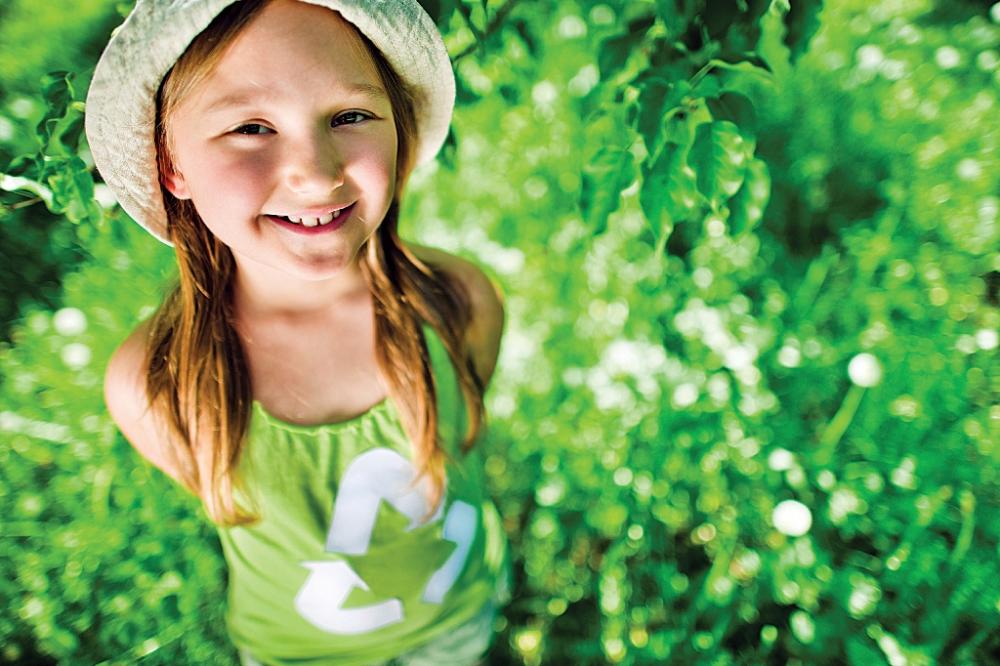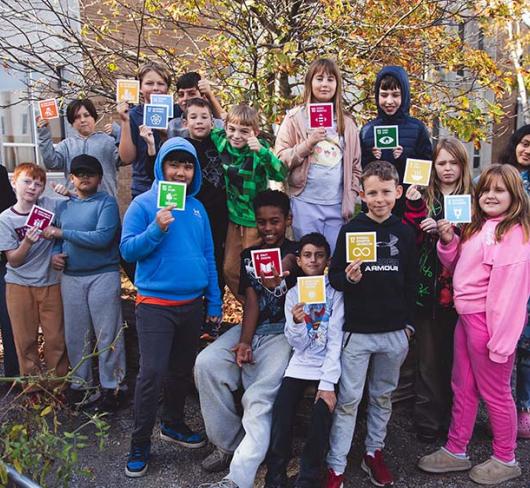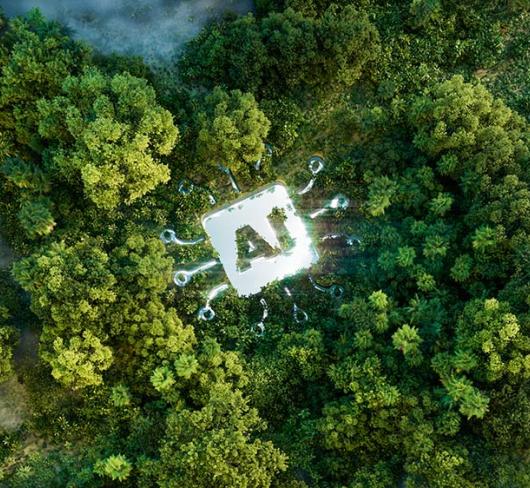
Earth Month 2014: A Call to Action
Whether you passively watch it or actively work to mitigate it, we have entered into a state of global environmental emergency. We cannot go on as if it were business as usual. Unsustainable environmental practices are systemic and impact every aspect of our daily lives. Violent storms, drought, and species extinction are significant consequences to widespread pesticide use, pollutants, and harmful resource extraction practices such as Canada’s tar sands. Widespread unemployment and poverty are also consequences. April is a great time to think about how we are preparing our students to be good environmental stewards and to highlight environmental issues. Here are some ideas for your classroom.
Celebrate Earth Month: Don’t let Earth Month go by without lots of recognition. Make it a big event, like an environmental film festival, or several smaller events like inviting a First Nations storyteller into your classroom, participating in Meatless Mondays and Trashless Tuesdays or running no-trace camping skills workshops.
Freebie: The Ontario Teachers’ Federation and Planet in Focus provide a guide to organizing an Environmental Film Festival. tiny.cc/FilmFestGuide
Teach sustainability–explicitly: Knowledge is power, and when people understand the issues, they are better equipped to tackle them. Each year students should be strengthening their understanding of the complexity of sustainability. The World Commission on Environment and Development’s definition is “Development that meets the needs of the present without compromising the ability of future generations to meet their own needs.” What does sustainability look like?
Freebie: Use the Story of Stuff, a 20-minute movie about the way we make, use, and throw away stuff. tiny.cc/StoryOfStuff
Get outdoors: Education writer David Sobel says, “If we want children to flourish, to become truly empowered, then let us allow them to love the Earth before we ask them to save it.” Give students the opportunity to develop a relationship with the Earth. Have students adopt a tree in their schoolyard or community to use for art (draw the tree in each season) or to use as writing prompts (“Day in the Life of My Tree”).
Freebie: The Back 2 Nature Network offers the ultimate kindergarten to grade 8 guide for teaching all subjects outdoors, developed by and for teachers. Available in both English and French, an essential addition to your resources! tiny.cc/IntoNature
Bring the outdoors in: Start a worm bin! Composting has endless connections to the curriculum and can help foster conversations regarding consumption, food waste, food sources and security, agriculture, life cycles, among many other important topics. The resulting rich humus will restore nutrients in your garden – a great way to start preparing for or extending a learning garden.
Freebie: A great ten-page how-to guide for the novice vermiculturalist written in student- friendly language. Another must-have resource accessible to students; comes with a free compost- log template! tiny.cc/WormBin
Get in touch with your waste: Don’t make this a bigger task than you can handle! Start by estimating your classroom’s weekly number of garbage bags, and your electricity and water usage. Learn together as a school and have school-wide estimations. Divide the responsibility and have different classes check to see the reality and announce their findings. Then make a plan to reduce your waste. Simply monitoring and bringing awareness usually makes a huge difference!
Freebie: Even if you aren’t registered as an EcoSchool, the program offers a wealth of resources from waste audit instructions to lights-off tally charts, school ground greening to curriculum links, for both elementary and secondary schools. tiny.cc/EcoSchools
Connect with your community: Take a deep breath and exhale. A year from now, the billions of atoms in your breath will have circulated around the entire planet, and a small few of them will have made their way back to you to be breathed in again. We are all connected, and not just virtually. Start more community engagement projects, make schools a shining hub of community. Display proudly the events happening in the area on a large calendar, organize bike and walk-to-school parades, farmers’ markets, etc. Make a concerted effort to connect and engage the communities you’re involved in, and celebrate! The answer to solving our unsustainability isn’t isolating ourselves; the answer is creating alternatives together and coming together as a community.
Activism: Activism can take many forms, and it doesn’t suit everyone to march on the streets. But every individual can affect their communities and the people around them through their conversations and the choices they make. Contacting your councillor, mayor, MPP and MP, political party leader, or prime minister also cultivates good citizenship.
Freebie: Check these child activists out online: Rachel Parent, Kelvin Doe, Kid President, and Birke Baehr. They are working to make a difference.
Make a change: Take a pledge and commit yourself to at least one lifestyle change, because we cannot continue on the path that we’re on. Look for opportunities to make a difference. We need to re-evaluate our values and consumption patterns, and transform our attitudes and behaviours. It will take courage and strength. Nelson Mandela said, “It always seems impossible until it’s done.”
Make time to participate: No one person is going to solve this for us. The most important thing you can do this Earth Month is make time to participate. Feeling the Earth’s pain is natural, necessary, and is the first step in healing. This isn’t how the world has always been, it’s how it has become. The future can be shaped by you. Stay aware, engage your students, and be present.
April is a great time to put some of these ideas into practice. Engage in some fun, practical, and empowering activities to facilitate environmental stewardship among your students
Sarah Lowes is a member of The Halton Teacher Local. Connect with her at about.me/sarlowes.

